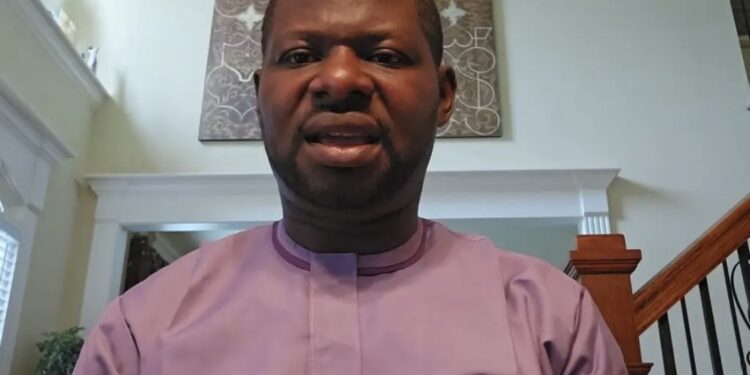Adewale Giwa, the Senior Pastor of Awaiting The Second Coming of Christ Ministry, stated on Tuesday that Peter Obi, the 2023 presidential candidate for the Labour Party, is responsible for the hardships Nigerians are facing under President Bola Tinubu’s administration. Giwa’s remarks come amid ongoing economic challenges and rising dissatisfaction among the populace.
In a recent interview with journalists, Pastor Giwa argued that Obi knew he could not win against the All Progressives Congress (APC) in the presidential election and chose instead to act as a spoiler. He believes that Obi’s decision to run without a strong coalition contributed to the current state of the nation, suggesting that his candidacy diverted crucial votes that could have supported a more viable opposition.

Giwa emphasized that no single political party can defeat the ruling party in Nigeria, citing the fragmented nature of the country’s political landscape. “The opposition parties are a major problem for Nigeria,” he said. “Obi knew he couldn’t defeat the ruling party, but he still ran to disrupt the election.” This view reflects a broader concern among some political analysts that a lack of unity among opposition parties hampers their ability to challenge the status quo.
Highlighting historical precedents, Giwa pointed out that defeating an incumbent party requires a coalition. He recalled how multiple parties came together to oust Goodluck Jonathan in 2015, a pivotal moment in Nigerian politics. “Buhari lost three times before forming alliances to defeat the PDP,” he noted, illustrating the importance of strategic partnerships in politics.

The pastor also criticized Nigeria’s electoral system, arguing that it allows unqualified candidates to rise to power, undermining the democratic process. “This has happened before under Obasanjo and Jonathan,” he said. “It takes those who know God to do what is right.
These politicians are selfish and not ready to address the challenges facing Nigeria.” His comments highlight a growing sentiment that many politicians prioritize personal gain over the welfare of the country.
Furthermore, Giwa expressed concern about party loyalty, stating, “If you could leave someone who claims to be a member of your party to serve as Minister under another political party, it portrays you to be a jester.” He suggested that such actions weaken the integrity of political parties and betray the trust of their supporters.
Giwa stressed the importance of unity among opposition parties, stating, “If you know you have a common enemy, you should work together to defeat him.” His call for collaboration reflects a broader hope for a more cohesive and effective opposition in Nigeria’s political landscape. As the nation grapples with economic challenges and governance issues, the need for a unified political front may become increasingly critical for change.


































